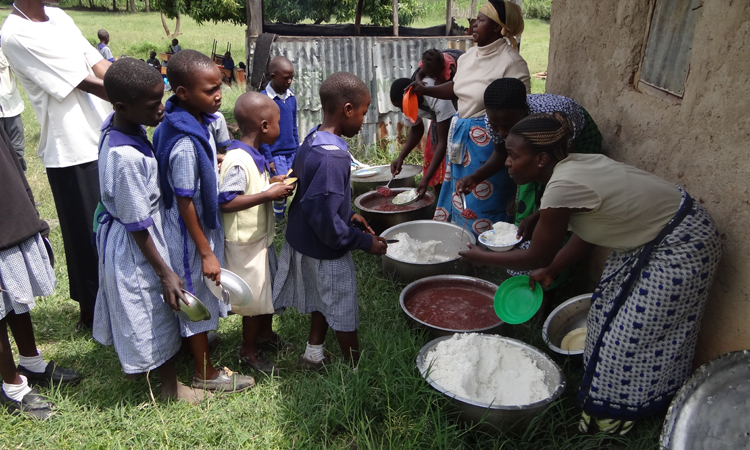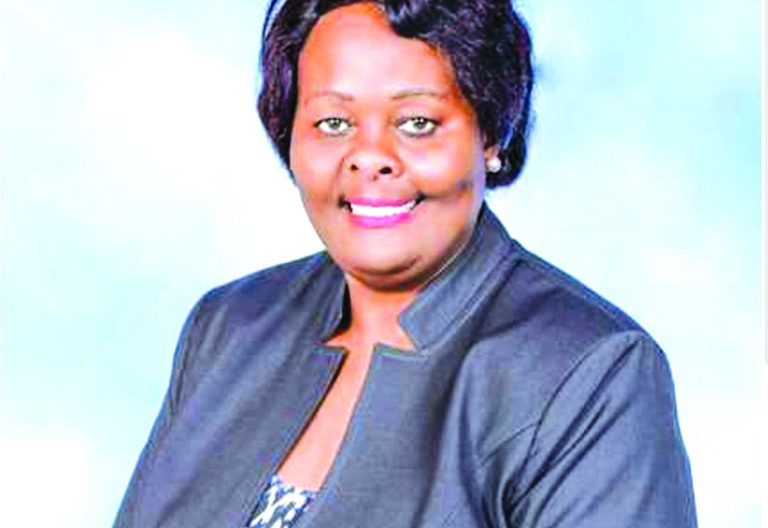Food for thought: MPs to vote on school meals bid

Members of the National Assembly are this week expected to vote on a motion seeking to re-introduce a feeding programme to keep children in schools following the prolonged drought.
The lawmakers, who reconvene today after 10-day break, concluded debate on the motion that was moved by Kakamega Woman Rep Elsie Muhanda.
Temporary Speaker and Ugenya MP David Ochieng said Muhanda will be allowed to give her closing remarks. “The mover of this motion would be asked to reply to it next time.”
In the motion, Muhanda wants the Ministry of Education, through the relevant State department, to develop a school feeding policy to cover basic education for pupils and sustain the programme to ensure children are maintained in schools for effective learning and well-being.
She expressed concern the exercise is not supported by a clear policy and budgetary framework, and does not include pupils in primary and secondary schools who form the basic education ecosystem.
Core intervention
“Primary school completion rates have been found to be higher in schools with meals provided, thus school meals remain a core development intervention to support the country’s achievements in the education sector; recognising that some county governments have adopted direct and community-led initiatives for ECDE school feeding programmes,” she said.
Muhanda said it is obvious that school meals are an important safety net for vulnerable children from food-insecure households and communities, as they have multiple benefits such as increased school enrolments and attendance as well as a significant contribution to reducing hunger and improving nutritional intake.
During debate on the motion, lawmakers supported the motion saying there is a need for a school feeding policy.
Kesses MP Julius Rutto said it was high time both levels of government, devolved and national, allocated resources to the programme. “I come from Eldoret. I am a Member of Parliament for Sekunanga and Racecourse Slums. Racecourse Primary School has a population of more than 10,000 pupils. However, on any given day, more than 200 pupils are always absent. Where do they go? They beg in the streets looking for food to provide for their families. We need to address these challenges once and for all,” he said.
Mathioya MP Edwin Gichuki said evidence has shown that because children in boarding schools get all the meals — breakfast, lunch and supper — they perform better than those in day schools, especially under-privileged day schools that are not able to provide free food.
Gichuki said the school-feeding programme is a short-term intervention measure and, therefore, to ensure that children stay in schools, there is a need to build capacity for schools to also produce food.
“Looking at the history of this school feeding programme, we know that in the 1980s there was the Maziwa ya Nyayo scheme, which some of us were privileged to take during our primary school years. I think that is why we used to perform better compared with some of the learners now. Milk provides lots of nutrients,” he said.
Narok South MP Kitilai ole Ntuntu said Parliament should come up with a school feeding programme that is supported by a clear policy and budgetary framework that is fully anchored in the law.
Marsabit Woman Representative Naomi Waqo said that proper policies should be put in place for such a programme.
“I suggest that proper monitoring and evaluation should take place every three years so that this House is guided by facts. I call upon the national and county governments to give this serious matter proper attention and focus on areas that are seriously affected by drought”, said Waqo.
— that is the northern parts of Kenya. Some nutritional supplements may also be provided in schools,” said Waqo.












